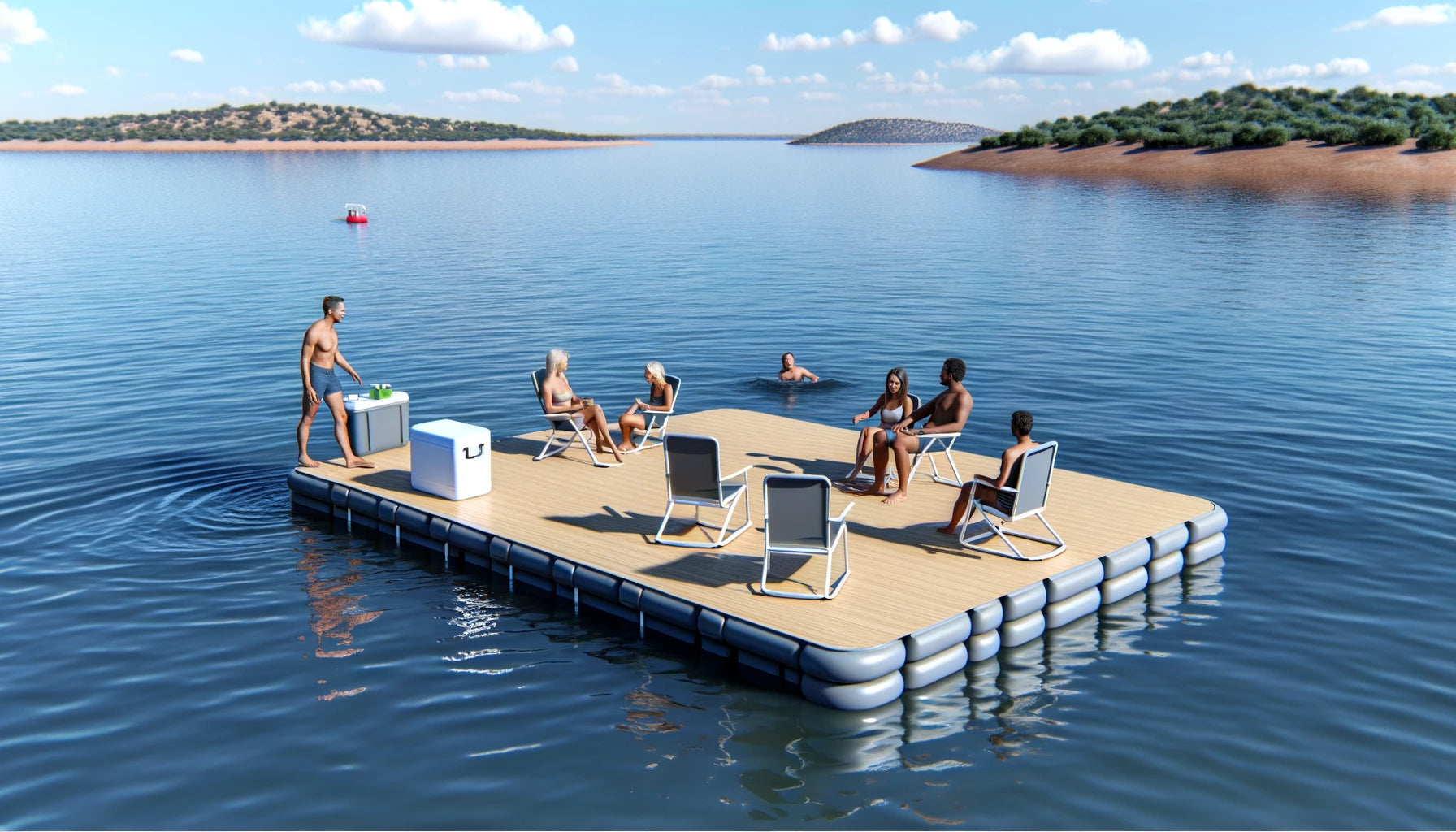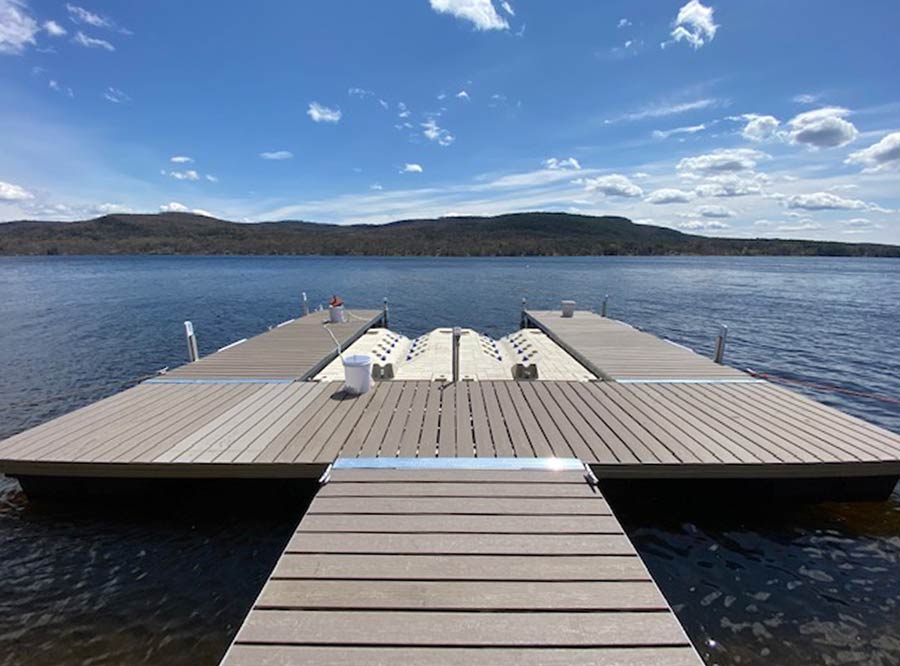The Ultimate Guide to Selecting the most effective Floating Docks
Selecting the suitable floating dock requires a comprehensive understanding of different components that influence both performance and long life. Factors such as dock types, products, and crucial features dramatically impact your decision-making process.
Comprehending Floating Dock Kind
When picking a floating dock, it is essential to understand the different types offered, as each offers distinctive objectives and applications. Floating docks primarily come under three categories: modular, fixed, and pontoon docks.
Modular docks are made up of individual sections that can be easily assembled or reconfigured, making them perfect for altering water levels and varied usages, such as entertainment tasks or business procedures. Their adaptability enables modification based upon details demands.

Pontoon docks are identified by their buoyant framework, typically composed of several pontoons that provide stability and support. They are specifically well-suited for bigger vessels and are typically made use of in marinas or for waterfront homes. Understanding these kinds help in choosing the most proper floating dock to meet certain demands, making sure optimum performance and safety and security.
Key Products for Resilience
Choosing the appropriate materials for floating docks significantly impacts their toughness and long life. The most common products consist of wood, plastic, steel, and composite products, each offering distinct advantages and restrictions.
Timber, commonly favored for its visual appeal, needs routine upkeep to withstand wetness and degeneration. Pressure-treated lumber can boost resistance to rot, however it may still be prone to parasites and weathering.

Plastic docks, made of high-density polyethylene (HDPE), are resistant to corrosion, UV radiation, and effect, making them a prominent choice for coastal settings. Their light-weight nature likewise promotes easy installation and relocation.
Metal docks, normally built from aluminum or galvanized steel, give phenomenal stamina and sturdiness. They are resistant to corrosion, specifically when treated, but might need added insulation to protect against warm accumulation in warm climates.
Composite products, integrating wood fibers and plastics, provide the benefits of both wood and plastic, resisting moisture and fading while calling for very little upkeep. - dock company
Eventually, the choice of products should straighten with environmental problems, planned use, and upkeep choices to guarantee the floating dock remains useful and visually pleasing with time.
Necessary Features to Think About
While the selection of materials is vital, taking into consideration essential attributes for floating docks is similarly vital to make sure ideal efficiency and customer why not check here fulfillment. One vital feature to evaluate is the dock's buoyancy capability, which determines just how much weight it can sustain without immersing. floating dock company. This is essential for accommodating boats, personal watercraft, and even leisure tasks
In addition, portability is a considerable factor to consider. Relying on your demands, you might desire a dock that is very easy to deliver and disassemble, particularly if you plan to relocate it seasonally. Stability is another important feature; a well-designed floating dock must decrease activity created by wind and water currents, giving a safe and secure system for customers.
Safety and security functions, such as non-slip surfaces and rounded sides, are likewise crucial to stop crashes, specifically in damp conditions. Additionally, consider the availability of devices, such as ladders, bumpers, and cleats, which can enhance the capability of your dock.
Installation and Upkeep Tips
Setting up and keeping a drifting dock requires mindful preparation and interest to detail to guarantee its longevity and optimum performance. Begin by picking an ideal place that lessens direct exposure to strong currents and waves, which can cause damage. Make certain that the water depth suffices for the dock's elevation which it is secured securely to stop motion.
Throughout setup, follow the maker's guidelines closely, as improper setting up can compromise stability. Usage top notch materials resistant to deterioration, such as aluminum or dealt with wood, to boost longevity. Routinely check all components, including drifts, connectors, and anchoring systems, for indicators of damage or wear.
If your dock makes use of flotation protection tools, ensure they remain intact and totally free from leaks. By adhering to these installation and maintenance tips, you can delight in a reliable and functional floating dock for years to come.
Budgeting for Your Dock
Budgeting for your dock is a crucial step that can considerably impact your Continued overall complete satisfaction and investment in a waterside building. Developing a clear budget plan helps you browse the numerous choices available and guarantees you make informed choices that line up with your financial capabilities.
Begin by determining the dimension and design of the dock you call for, as these variables will greatly affect the cost. Floating docks can vary dramatically in cost, depending on products, buoyancy, and features like accessories and ramps. Study different manufacturers and distributors to compare rates and comprehend the market worth.
In enhancement to preliminary costs, consider continuous expenditures such as maintenance, insurance coverage, and prospective fixings. Designate funds for these recurring expenses to avoid surprises down the line. It's additionally prudent to allocate any type of essential permits or examinations, which may be needed by local policies.
Last but not least, bear in mind the prospective roi. A well-planned dock can improve your residential or commercial property's worth and allure, offering a favorable economic impact in the long-term. By budgeting effectively, you can make sure that your dock fulfills your needs without jeopardizing your economic security.
Verdict
In conclusion, selecting the ideal floating dock requires an extensive assessment of numerous aspects, including dock kinds, products, important attributes, and setup processes. Mindful consideration of financial restrictions will additionally make sure a sound financial investment.

While the option of products is critical, thinking about essential features for floating docks is similarly vital to ensure optimal performance and individual contentment.Setting up and maintaining a floating dock calls for mindful preparation and focus to information to ensure its longevity and optimal performance. Floating docks can vary dramatically in rate, depending on products, buoyancy, and features like ramps and accessories.In conclusion, selecting the perfect floating dock requires a detailed evaluation of various factors, try this website consisting of dock types, products, essential features, and installment procedures.